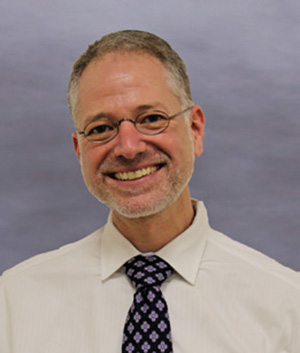
Here is a thing of which [someone] will say, “See this, it is new.” It has already been for ages that were before us.
יֵשׁ דָּבָר שֶׁיֹּאמַר רְאֵה זֶה חָדָשׁ הוּא כְּבָר הָיָה לְעֹלָמִים אֲשֶׁר הָיָה מִלְּפָנֵנוּ
Three thousand years ago, King Solomon expressed timeless wisdom about the illusory nature of change and human progress. Then, as now, the Jewish people strived to maintain our unique sense of national mission and identity. Jewish education today must help students to apply timeless truths to life in a world that, at least in superficial ways, is constantly changing.
At its best, today’s Jewish education engages students in educational experiences meant to help them develop strong Jewish identities while exploring the interests and skills that will help them thrive in the global marketplace of the future. As director of studies at Rae Kushner Yeshiva High School, I am privileged to witness this kind of ambitious, integrated, practical, yet reflective Jewish education daily.
One recent experience serves as an exemplar of this engaged approach. Kushner students involved in an innovative, project-based, interdisciplinary course on law and economics took a tour of the floor of the New York Stock Exchange (NYSE) during live trading. This once-in-a-lifetime opportunity demonstrated King Solomon’s wisdom about the “new” and the “old” in a concrete way, inspiring students to ask important questions about the world in which they live.
When we arrived at the NYSE, we were greeted by a simple exhibit of four artifacts that captured the Exchange’s rich, historic nature: a handwritten notebook from the 19th century used to document each trade; an Edison stock ticker (an augury of a digital world); an electronic LCD handheld ordering device from the 90’s (think Apple Newton); and the proprietary, high-tech, wireless color tablet used by traders today. Our guide, a trader for Goldman Sachs, explained that when he started his career on the floor in 1987, he was one of over 5000 traders at the NYSE. Today, with the growth of electronic markets, there are only about 500. Less than a third of the companies that once dominated the Dow Jones Industrial Average in 1987 remain as independent companies today. Today’s Jewish educators strive to best prepare our students to thrive in this challenging, changing society.
Our visit to the NYSE made clear the dramatic ways in which the pace of technological change continues to transform entire industries and professions. Jewish education must prepare our students to be the “knowledge workers” of the 21st century. Education must prepare students not simply to memorize “old” stagnant information, but to cultivate a growth mindset as they collaborate creatively to meet the “new” changing conditions of life today.
In his introduction to his work “The Innovators,” Walter Isaacson seeks to disprove one of the most persistent myths about creative achievement in the digital age. He argues that the great accomplishments of the digital age are not the product of solitary individuals in a garage or laboratory:
Instead, most…were done collaboratively. There were a lot of fascinating people involved, some ingenious and a few even geniuses. This is the story of these pioneers, hackers, inventors, and entrepreneurs—who they were, how their minds worked, and what made them so creative. It’s also a narrative of how they collaborated and why their ability to work as teams made them even more creative.
Isaacson argues that as much as technology has changed and may continue to change how and where people work, the vital role of human cooperation, collaboration and creativity endures. The spirit of chavruta, forged through experience, demonstrates that partnership and discussion is more fruitful than solitary study. It is as true in the marketplace as it is true in the Beit Midrash.
The need to transmit not just what is “new” but also what is “old,” lasting and true remains the unique challenge of Jewish education. We must at once prepare our students for a quickly changing world, while also educating students in the values and traditions that have preserved and strengthened our people for thousands of years.
By Dr. Adam Dobrick
Dr. Adam Dobrick is the director of studies at the Rae Kushner Yeshiva High School.









